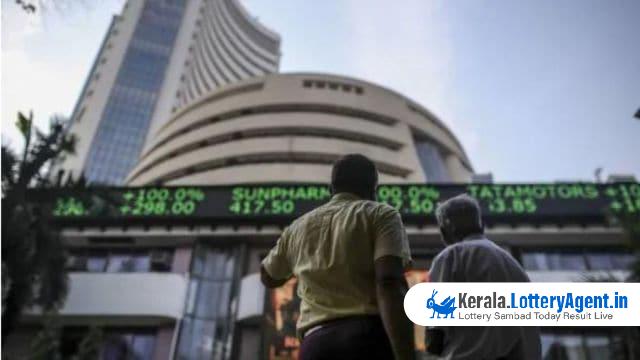
On a day characterized by cautious trading, the Indian stock market benchmarks, BSE Sensex and NSE Nifty, concluded the session on Monday, May 6, nearly unchanged as market participants engaged in profit-booking in key heavyweight stocks. The former, Sensex, made a slight surge by 17.39 points or 0.02 per cent, ultimately settling at 73,895.54, while Nifty, the broader index, saw a diminution of 33.15 points or 0.15 per cent, closing at 22,442.70.
The trading day saw specific individual stock movements, most notably from the banking sector. Kotak Mahindra Bank emerged as a top performer, witnessing a leap of 5 per cent after the company’s announcement of a robust 25 per cent growth in its March quarter net profit which clocked in at Rs 5,302 crore. Moreover, the tech giant TCS, along with consumer staples heavyweight Hindustan Unilever, and automobile major Mahindra & Mahindra, joined Kotak Mahindra Bank’s ranks among the session’s significant gainers.
However, not all shares experienced the same fortune. Titan, the prominent jewelry and watch retailer, faced a sharp 7 per cent drop post their March quarterly earnings report, which seemingly disappointed the market. State Bank of India (SBI), electricity giant NTPC, utility major Power Grid, financial services heavyweight Bajaj Finance, and engineering and construction conglomerate Larsen & Toubro, were listed among the notable decliners of the day.
In a sectoral overview, a range of sectors managed to hold their ground in positive territory. The IT, pharmaceutical, automotive, fast-moving consumer goods (FMCG), real estate, and healthcare indices all remained upbeat. Conversely, sectors dealing with state-owned banks, metals, energy, and media experienced downward trends and traded in the red.
Analysts shed light on the market’s behaviour. Vinod Nair, Head of Research at Geojit Financial Services, delineated how the domestic indices underwent range-bound trading, elucidating that the broader indices were also subjected to the vicissitudes of major selling pressure which arose from valuation apprehensions and profit-booking activities.
Detailing the pressure points, Siddhartha Khemka, Head of Retail Research at Motilal Oswal Financial Services, elucidated that investor sentiment towards public sector banks (PSUs) was particularly skittish. According to Khemka, “Since PSU banks have higher exposure to corporate and infrastructure loans, it will hurt their margins if the norms are implemented. That’s why state-owned banks are reacting negatively,” highlighting the impact of prospective regulatory norms on banking sector performance.
The financial markets also cast an eye toward global commodities. The Brent crude oil benchmark, a barometer for international oil prices, climbed 0.80 per cent in the session to reach the $83.62 a barrel mark, influencing energy and related stocks.
The day’s trading encapsulates the broader dynamics at play within the Indian stock market. Investors took cues from corporate earnings reports, sector-specific developments, and global economic indicators, maintaining a cautious stance that resulted in the benchmarks ending the session at nearly flat levels. The equilibrium underscores the critical balance investors seek to strike between growth prospects and risk amidst an ever-evolving economic landscape.













